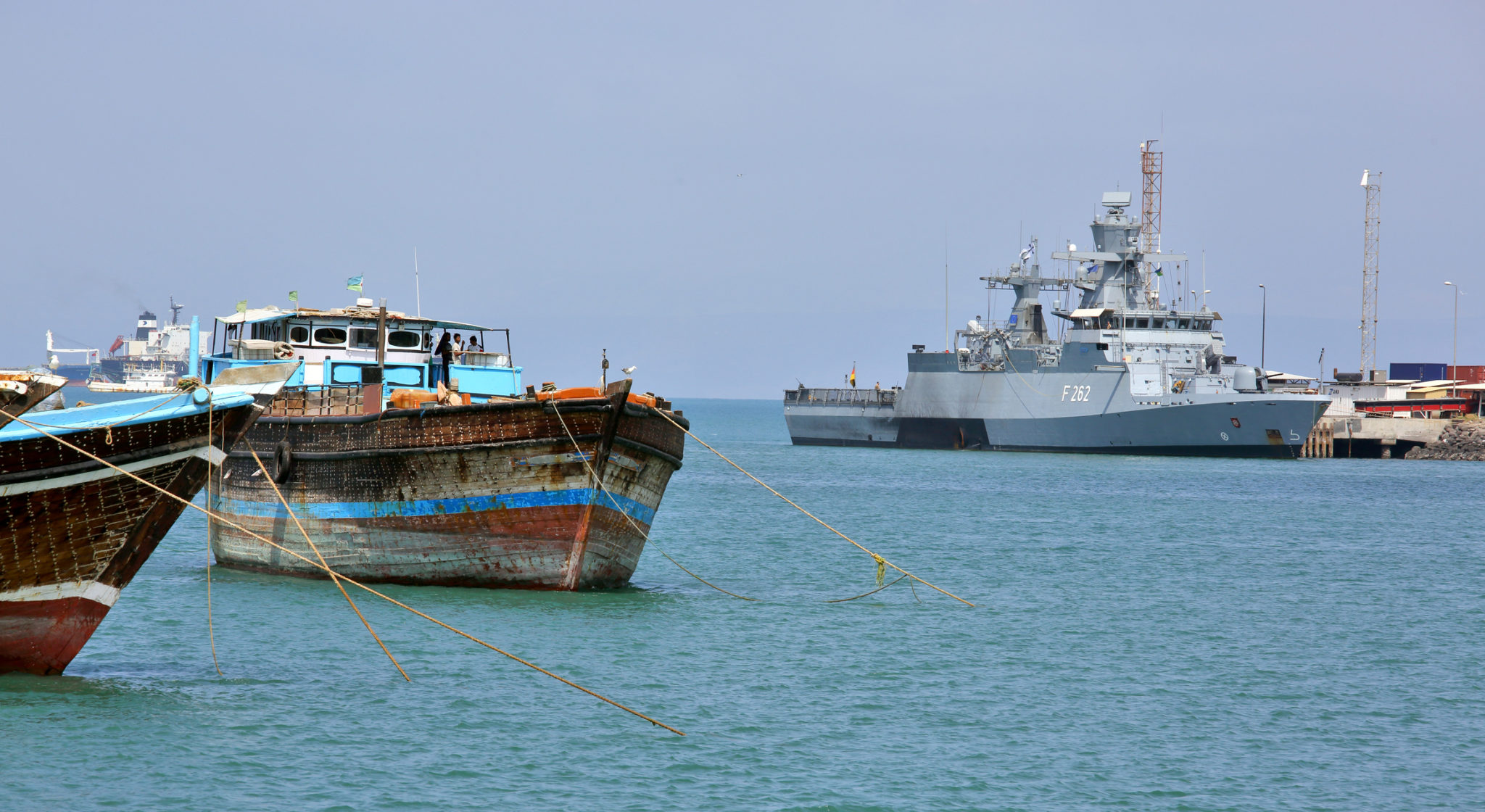
Red Sea Economic Times – April 23
Business and Economic News from the Red Sea region and littoral states Egypt, Saudi Arabia, Sudan, Yemen, Eritrea, Djibouti from regional, international, and industry media – April 23, 2020
Yemen/Flood – “Flash floods caused by heavy rains have hit Yemen’s interim capital, Aden, leading to a power outage and city-wide immobilization. Eight people, including five children, have been killed and dozens injured, officials said. The deaths take the national toll to at least 15 after the United Nations said that seven other people were killed by flooding in the north, where the country’s long conflict is raging between the government and the Iran-backed Houthi militias,” Asharq Al-Awsat reports.
Yemen/Flooding – “Heavy thunderstorms that brought flooding and damaging winds to parts of the Arabian Peninsula earlier in the week are being blamed for multiple casualties in the region. A storm system swept across the Arabian Peninsula on Monday and Tuesday, sparking thunderstorms that produced flooding downpours, gusty winds and frequent lightning strikes across the region,” AccuWeather reports.
Sudan/Covid-19 – “With just a few hundred ventilators and international aid slow to materialise, Sudan’s fledgling government knows it has an uphill battle against a coronavirus pandemic that has brought far richer countries to a standstill. The number of cases of the novel coronavirus is still small and doctors say they are able to cope so far, but they are concerned that a healthcare system that has been underfunded for decades will not be able to cope if numbers spike,” The New York Times reports.
Sudan/Food Security – “Food security in Sudan faces new challenges as the government takes restrictive measures on stemming the spread of the novel coronavirus. The measures have greatly affected producers especially those working in the agriculture sector, which represents 44% of the Sudanese economy,” Asharq Al-Awsat reports.
Eritrea – “Eritrean president Isaias Afwerki has delivered his first public address on the coronavirus pandemic since the country recorded index case on March 21. In a message broadcast via public broadcasters, Eri-TV and Radio Dimtsi Hafash, he likened the COVID-19 pandemic to a sudden war that the world least expected and was thus not fully prepared for,” AfricaNews reports.
Saudi Arabia Debt – “Saudi Arabia may borrow an additional 100 billion riyals ($26.6 billion) this year and the total debt could reach 220 billion riyals ($58.5 billion), said Minister of Finance, Acting Minister of Economy and Planning, Mohammed al-Jadaan on Wednesday. The Kingdom will draw down no more than 110-120 billion riyals ($29.2-31.9 billion) from its reserves to finance a government deficit caused by oil price collapse and the coronavirus pandemic,” Al-Arabiya reports.
Eritrea/Ethiopia – “Ethiopia has stopped granting automatic asylum to Eritreans entering the country. The United Nations and aid groups say the previously unannounced policy change, which went into place about three months ago, put Eritreans trying to flee the country at the mercy of unscrupulous human smugglers. For years, Ethiopia had an ‘open-door’ policy towards refugees from countries such as South Sudan and Eritrea, earning it widespread acclaim among international donors,” New Delhi Times reports.
Djibouti Floods – “In the night between 20 and 21 April, Djibouti city received 80 mm of rainfall in few hours (half of the annual average), triggering widespread flash floods. Heavy rains also occurred in other areas of the country, causing some damages,” ReliefWeb reports.
Suez Receipts – “Tax and non-tax proceeds from Egypt’s Suez Canal fell by 4.7% year-on-year (YoY) to EGP 35.91 billion during the first seven months of fiscal year 2019/2020, compared to EGP 37.7 billion. Taxes on Suez Canal’s earnings reached EGP 18.8 billion from July 2019 to last January, compared to EGP 19.4 billion in the year-ago period, according to recent data released by the Ministry of Finance,” Hellenic Shipping News reports.
Egypt/Subsidies – “Egypt plans to cut spending on fuel subsidies by 47% in its 2020/21 budget to 28.193 billion Egyptian pounds ($1.8 billion), an explanatory note for its draft budget published showed. It allocates 52.963 billion pounds for fuel subsidies for the 2020/21 fiscal year. Last December, Egypt’s Minister of Petroleum Tarek al-Mala said that support for petroleum products fell to 7.250 billion pounds ($451.4 million) in the first quarter of the fiscal year 2019-2020, compared with 13 billion pounds estimated in the budget, compared to 23.25 billion pounds a year ago,” Asharq Al-Awsat reports.
Yemen War – “A two-week ceasefire in Yemen announced by a Saudi-led military coalition expired on Thursday without leading to a permanent truce, raising fears that the country’s war will grind on and shatter its already weakened ability to combat coronavirus,” Reuters reports.
Yemen/Hodeidah – “Pro-government Yemeni health workers launched a wide-scale sanitation and disinfection campaign in the war-ravaged port city of Hodeidah on Tuesday, as part of preventive measures to fight COVID-19 in the impoverished Arab country. According to a local official, who asked to remain anonymous, the Saudi-backed Yemeni government funded an initiative to sanitize many residential areas where poor families are living in Hodeida,” Xinhua reports.
East Africa Locusts – As the East African Community partner states are continuing to grapple with the effects of Covid-19, the Food and Agriculture Organization of the United Nations (FAO) has warned of a possible re-invasion of locusts in the region,” The Tanzania Daily News reports.
Egypt/Tourism – “Tourism and medical sources in the Red Sea governorate on Saturday announced the end of quarantine for employees at hotels and resorts in Hurghada. These tourism staff concluded the entire period of quarantine which began since the facilities were first closed, the sources said, confirming that none of them had the coronavirus,” Egypt Independent reports.
Saudi/Red Sea Project – “The developer behind Saudi Arabia’s Red Sea Project has begun phase one of its operations breaking ground on the construction of a 1.5 million sq. meter coastal village area which will house workers, staff and management of the mega-city project…The Red Sea Project is a planned megacity on Saud Arabia’s western coast and will cover 28,000 sq. km in total area including 200 km of coastline. The city will welcome its first visitors by the end of 2022 and will be fully completed by 2030,” Saudi Gazette reports.
Djibouti Climate – “Once known as French Somaliland, and later the French Territory of the Afars and the Issas, the tiny country of Djibouti on the Horn of Africa gained independence in 1977. Roughly the size of Wales, it lies at the southern entrance of the Red Sea, opposite Yemen, and is bordered by Eritrea, Ethiopia and Somalia…Though this is not a world record, Djibouti city is one of the hottest inhabited places on the planet, with an average year-round temperature of 28.5C (83F),” The Guardian reports,
Tourism – “Since everything is going virtual now because of the social distancing measures that people have adopted to try and contain the spread of the COVID-19 pandemic, why not add virtual hiking to the list! Red Sea Mountain Trail announced that today marks the first days of its 50-day-long virtual hike thru, with pictures, maps, and stories of the land they cover. The Red Sea Mountain Trail normally takes 10 days to walk, so every 5 days, their official Facebook page will publish a post about a day on the trail,” ScoopEmpire reports.
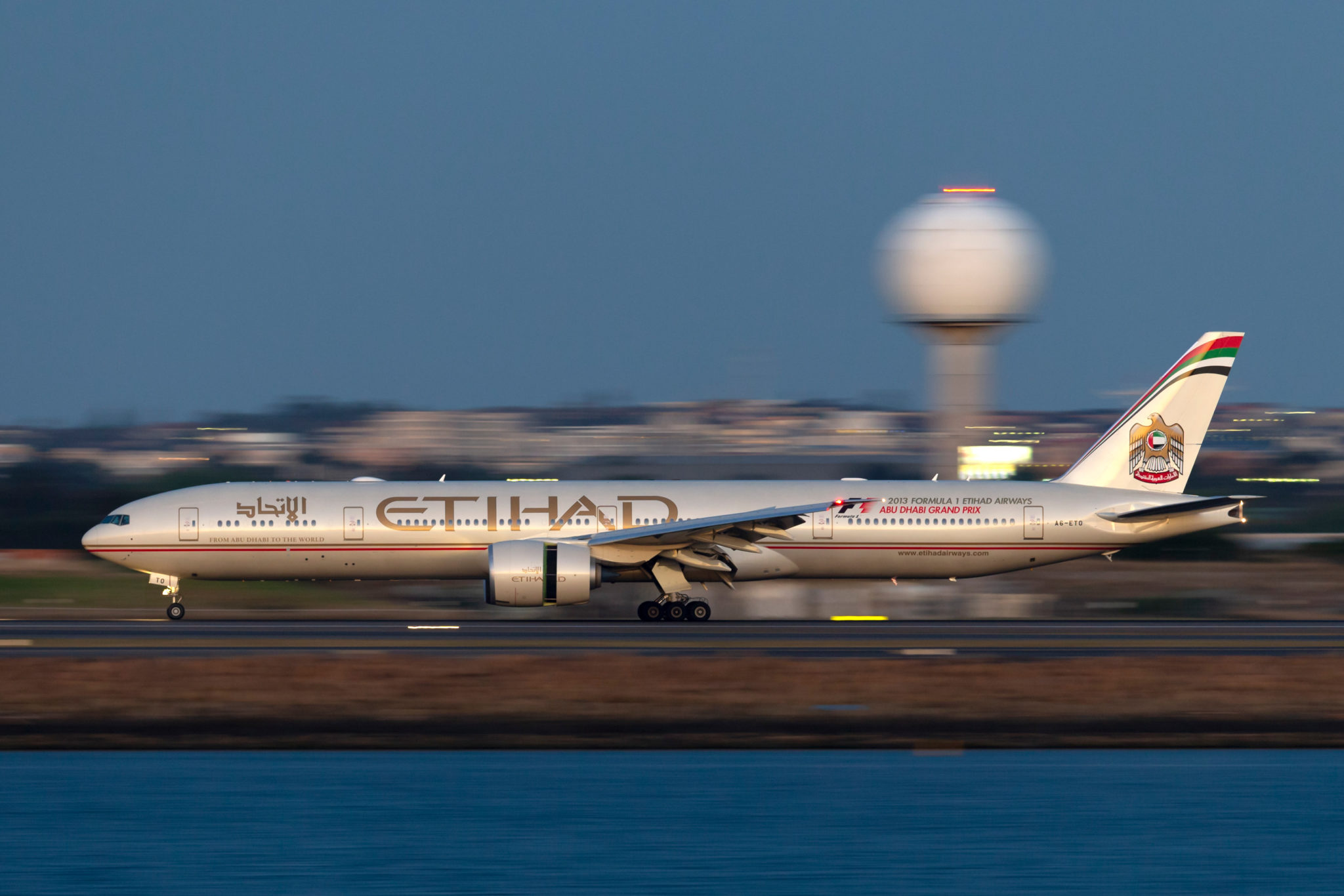
Middle East Business Telegraph Monitor – April 23
The top business/economic stories from the MENA region as reported in the regional and industry press – April 23
Region/Aviation – “’Urgent’ help is needed to help airlines across the Middle East and North Africa, where many are ‘struggling to survive’ amid the Covid-19 pandemic, according to Muhammad Al Bakri, the regional vice president of the International Air Transport Association (IATA). On Thursday, IATA said that MENA airlines could lose $24 billion worth of passenger revenue compared to 2019 – approximately $5 billion more than it had forecast at the beginning of April,” Arabian Business reports.
Saudi Arabia Debt – “Saudi Arabia may borrow an additional 100 billion riyals ($26.6 billion) this year and the total debt could reach 220 billion riyals ($58.5 billion), said Minister of Finance, Acting Minister of Economy and Planning, Mohammed al-Jadaan on Wednesday. The Kingdom will draw down no more than 110-120 billion riyals ($29.2-31.9 billion) from its reserves to finance a government deficit caused by oil price collapse and the coronavirus pandemic,” Al-Arabiya reports.
UAE/Aviation – “The UAE airlines will lose $6.8 billion (Dh25 billion) in revenues due to the impact of impact of coronavirus, putting 378,678 jobs at risk, according to the International Air Transport Association’s (IATA) latest data released on Thursday. The figures are higher than IATA’s previous forecast released three weeks ago when it predicted $5.36 billion revenue loss and 287,863 jobs at stake in the UAE,” Khaleej Times reports.
UAE/Lulu – “An Abu-Dhabi based investment firm has agreed to buy a stake worth just over $1 billion (Dh3.67 billion) in LuLu Group International, which runs one of the Middle East’s largest hypermarket chains, according to people familiar with the matter. The company acquired an almost 20 per cent holding in the Abu Dhabi-based supermarket group founded by Indian entrepreneur Yousuf Ali MA, the people said, asking not to be identified as the matter is private,” Gulf News reports.
Eithad/Air Arabia – “Air Arabia Abu Dhabi, the new joint venture between Etihad Airways and Air Arabia, secured its air operating licence, making it the UAE’s fifth national airline once it begins service from the capital. The new discount carrier, which was expected to start operations in the second quarter of 2020, is working with the UAE’s civil aviation regulator to finalise its launch date once market conditions improve and skies re-open, it said in a statement on Thursday,” The National reports.
Saudi Aramco – “Saudi Aramco has isolated 15,000 employees on offshore oil rigs in order to ensure a continued supply of petroleum products to the world amid the coronavirus pandemic, the company told Al Arabiya English. Aramco, Saudi Arabia’s energy giant, is the world’s most valuable company, and pumps more oil on a daily basis than any other producer in the world,” Al-Arabiya reports.
UAE/E-Commerce – “The Carrefour UAE portal has been upgraded into a full-scale online marketplace, which means that it will now be competing against the likes of Amazon and noon. In the initial push, some Majid Al Futtaim’s mall tenants have already joined the platform, including Borders, LUSH, Tavola, Arabian Oud and Jacky’s,” Gulf News reports.
Majid Al Futtaim – “One of the biggest private employers in the Middle East has no plans to cut salaries or lay off any of its 44,000 workers, but the pandemic is changing its thinking about food security, retail and tourism. Majid Al Futtaim owns and operates hundreds of grocery stores and more than two dozen malls in the Middle East, Central Asia and Africa. In Gulf Arab states, it has more than 19,000 employees, mostly from the Philippines, India, Nepal, Bangladesh and Egypt. The workers’ salaries provide vital income for their families at home,” AP/Arab News reports.
GCC Remittances – “Global remittance flows will tumble 20 per cent this year as the coronavirus pandemic drags the economy through a recession, deepening hardship for families in poor and developing nations, according to the World Bank. Transfers to low- and middle-income countries from workers abroad probably will plunge by a fifth to $445bn, the Washington-based development institution said in a report on Wednesday,” Gulf Business reports.
Egypt/Subsidies – “Egypt plans to cut spending on fuel subsidies by 47% in its 2020/21 budget to 28.193 billion Egyptian pounds ($1.8 billion), an explanatory note for its draft budget published showed. It allocates 52.963 billion pounds for fuel subsidies for the 2020/21 fiscal year. Last December, Egypt’s Minister of Petroleum Tarek al-Mala said that support for petroleum products fell to 7.250 billion pounds ($451.4 million) in the first quarter of the fiscal year 2019-2020, compared with 13 billion pounds estimated in the budget, compared to 23.25 billion pounds a year ago,” Asharq Al-Awsat reports.
Morocco Tourism – “If Morocco does not urgently mobilize a plan to save its tourism sector, the country will lose over MAD 138 billion ($13.85 billion) between 2020 and 2022 due to the COVID-19 crisis, revealed a study by the National Tourism Confederation (CNT),” Morocco World News reports.
DP World – “The logistics sector is facing ‘uncertainty’ amid the Covid-19 pandemic despite a relatively stable first quarter for Dubai-based ports operator DP World, according to group chairman and CEO Sultan Ahmed bin Sulayem. In a statement on Thursday, DP World said that it handled 17.2 million twenty-foot equivalent units (TEUs) in Q1. Gross container volume fell by 1.7 percent year-on-year on a reported basis, and up 0.3 percent on a like-for-like basis,” Arabian Business reports.
Qatar/Vodafone – “Vodafone Qatar reported a net profit of QR48m for the first quarter of 2020, representing an increase of 10 percent year-on-year; the company’s highest achieved quarterly net profit,” The Peninsula reports.
Syria/Covid-19 – “As Damascus confirmed its forty-second case of the coronavirus and third death from the resulting disease, the government’s transparency has been questionable, as the slow rate of growth of the virus that causes COVID-19 in Syria has not followed the same exponential curve seen in most other countries. ‘The problem is that there is no access to official information, the relevant ministries do not share numbers,’ said Mohamad Katoub, the policy and advocacy manager for the Syrian Center for Media and Freedom of Expression,” Syria Direct reports.
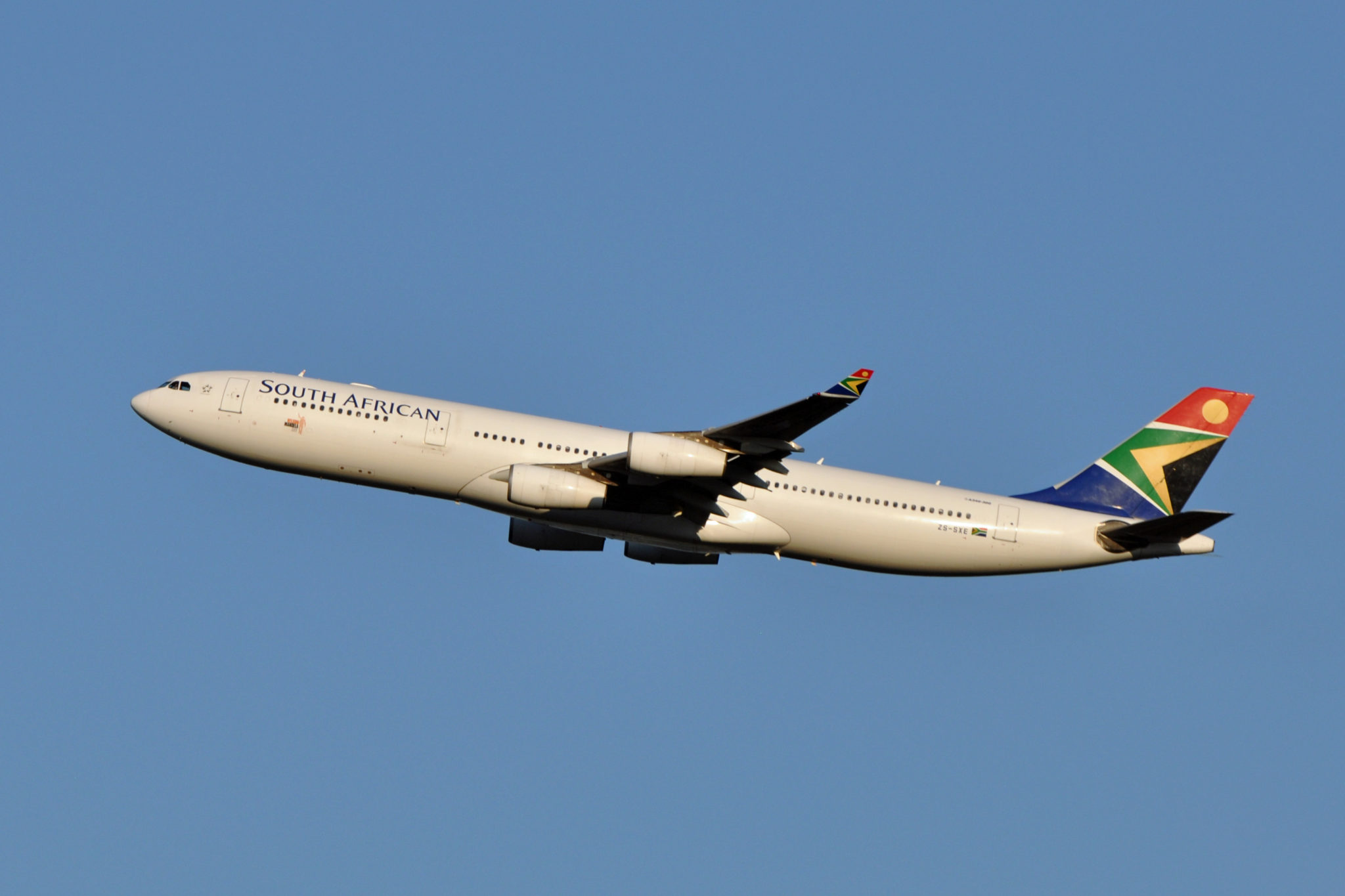
Africa Commercial Telegraph Weekly – April 22
Top business stories from Sub-Saharan Africa from the pages of the regional press – April 22
South African Airways – “South African Airways (SAA) is set to lay off all of its employees at the end of April. A document detailing the airline’s severance package, obtained by Bloomberg, shows that 4,700 employees will leave the company by the end of this month. The collapsing airline will reportedly make sales of its assets to foot the salary pay-outs,” Bloomberg/The Standard reports.
Africa/Covid-19 – “COVID-19 has now spread to all corners of Africa and, as the rate of infections increase, the continent’s economies are coming to a crashing halt, risking the reversal of two decades of economic progress. Trade has been the heartbeat of Africa’s economic success, with the UK alone importing £12.7bn in goods and services from Africa in 2016, much of which from the agriculture sector,” The Africa Report reports.
Nigeria Oil – “For weeks now Nigeria has been engaged in an usual battle to find enough buyers for its oil, and now global storage for crude oil is filling up with the harsh reality coming back home soon to hit homes, businesses and jobs as government finances collapse in Africa’s most populous nation. Tens and probably hundreds of millions of barrels of Nigeria’s flagship crude grade Bonny Light are held up inside ocean-going vessels in international waters around the world and buyers, when they come, are offering as low as $12 a barrel in the physical market, cheaper than a basket of tomatoes,” Business Day reports.
RwandAir – “RwandAir has resumed cargo flights to Guangzhou, China, as the airline embarks on a recovery path following suspension of passenger flights in March to stop the spread of Covid-19. The airline has been operating cargo flights only to Brussels and London at least once a week using its A330 jets, and had suspended cargo flights to China in February,” The East African reports.
East Africa – “All five East African Community countries should brace for drastic drops in their economic growth rates this year as a direct result of the global coronavirus crisis. The International Monetary Fund’s latest World Economic Outlook projections for 2020 pegs Kenya and Tanzania’s respective GDP growth rates at one per cent and two per cent respectively in 2020, down from 5.6 and 6.3 per cent respectively in 2019. Uganda will maintain a 3.5 growth rate this year, compared with 4.9 per cent in 2019,” The East African reports.
South Africa/Aviation – “The South African government will work with trade unions to ensure that a new financially viable and competitive airline emerges from South African Airways (SAA) business rescue process, the public enterprises ministry said on Tuesday,” Reuters reports.
S. Africa/Super Group – “S&P Global Ratings downgraded the long-term national scale rating of Super Group from zaAAA to zaAA due to the effects of Covid-19 and its negative impact on the transport and motor industries worldwide,” The Star reports.
Ghana Ratings – “Fitch Ratings has affirmed Ghana’s Long-Term Foreign-Currency Issuer Default Rating (IDR) at ‘B’ with a Stable Outlook,” Fitch Ratings reports.
West Africa Migration – “The Covid-19 pandemic has affected mobility across West Africa. As of the end of March, borders remained open only in Benin, the Gambia, Guinea Conakry, Liberia and Sierra Leone. International air travel was also almost entirely halted; only Benin and Togo were still open to international flights, and Sierra Leone’s airport was open with restrictions. Border closures have stranded travelers in a variety of locations across the region,” ReliefWeb reports.
East Africa Locusts – As the East African Community partner states are continuing to grapple with the effects of Covid-19, the Food and Agriculture Organization of the United Nations (FAO) has warned of a possible re-invasion of locusts in the region,” The Tanzania Daily News reports.
Nigeria/Covid-19 – “Confirmed cases of the deadly coronavirus reported in Nigeria jumped by 117 on Tuesday night, the highest daily figure reported by NCDC since it recorded the first case in February,” Business Day reports.
Kenya Debt – “The amount of debt falling due this year has dropped by Sh29 billion after reconciliations passed through the supplementary budget by the National Treasury. The drop has revised what Kenya planned to pay this year to Sh253.2 billion, down from the Sh282.3 billion that was contained in the original budget for 2019/20,” The Daily Nation reports.
Uganda Reserves – “Bank of Uganda has said foreign reserves are expected to decline from 4.2 months import cover to 3.5 months. In his presentation during the Stanbic Bank webcast discussion on the impact of Covid-19 last week, Dr Adam Mugume, the Bank of Uganda executive director for research, said there was need to mobilise resources to support foreign reserves that are expected to take a hit due to Covid-19. The decline, he said, will also be experienced in the case international reserves that will fall to 3.6 months import cover in the 020/21 financial year,” The Daily Monitor reports.
Zambia Gold – “THE Bank of Zambia (BoZ) says preparations to start keeping gold as an alternative foreign reserve with a mining firm have advanced,” Zambia Daily Mail reports.
Zimbabwe Cotton – “Stakeholders in Zimbabwe’s cotton industry are seeking a subsidy on cotton producer price during the forthcoming season after international lint prices crushed to historic levels due to coronavirus,” The Herald reports.

Middle East Business Telegraph Monitor – April 22
The top business/economic stories from the MENA region as reported in the regional and industry press – April 22
Qatar/China – “China State Shipbuilding Corporation (CSSC) and Qatar Petroleum officially signed a RMB20bn($2.86bn) contract for the construction of LNG carriers at CSSC Hudong-Zhonghua Shipbuilding. It is the largest export LNG carrier construction contract a Chinese shipyard has ever received,” Seatrade Maritime News reports.
Russia/OPEC+ – “The Kremlin said on Wednesday that it was too early to draw any conclusions about possible additional steps to stem the slump in oil prices before the global deal agreed by the OPEC+ group takes effect on May 1. Oil prices slumped to less than $16 a barrel on Wednesday, hitting their lowest level since 1999, with the market awash with excess supply as the economic fallout from the coronavirus pandemic continues to hammer demand for fuels,” Reuters/Al-Arabiya reports.
Etihad/Virgin Australia – “Abu Dhabi’s Etihad was unable to provide financial assistance to Virgin Australia as a result of having to deal with its own pressures amid the Covid-19 pandemic, the airline said in a statement. On Tuesday, Virgin Australia – a major partner of Etihad’s – said that it had entered into voluntary administration after the Covid-19 crisis forced it into insolvency,” Arabian Business reports.
Oil Price – “Brent, the international oil benchmark, fell to the lowest level in more than two decades, a day after its US counterpart collapsed into negative territory. Brent, under which two-thirds of the world’s oil is traded, continued its decline from yesterday falling 13.55 per cent to trade at $16.71 per barrel at 11.18am UAE time, however it remains less volatile than West Texas Intermediate, the US benchmark,” The National reports.
Sudan/Food Security – “Food security in Sudan faces new challenges as the government takes restrictive measures on stemming the spread of the novel coronavirus. The measures have greatly affected producers especially those working in the agriculture sector, which represents 44% of the Sudanese economy,” Asharq Al-Awsat reports.
UAE/Etisalat – “Etisalat Group on Wednesday reported a net profit of Dh2.2 billion for the first three months of 2020 (Q1) in their latest financial results, representing a two per cent decrease year on year. The company’s financial results also reported consolidated revenues of Dh13.1 billion, a one per cent increase compared to last year. The group’s revenue in the UAE was down three per cent to Dh7.6 billion, with the company attributing the fall to increased competition and slower economic activities brought on by the COVID-19 pandemic,” Gulf News reports.
Turkey Economy – “Turkey’s economy is expected to contract this year for the first time in over a decade as the coronavirus pandemic slashes output through mid-year, and it’s unlikely to grow again until 2021, a Reuters poll showed on Tuesday. The median forecast of 40 economists was for a contraction of 1.4 percent in 2020, with drops in the second and third quarters of 8.6 percent and 5.3 percent respectively,” Reuters/Arab News reports.
Bahrain – “Bahrain will slash spending by ministries and government agencies by 30% to help the country weather the coronavirus outbreak, a cabinet statement said on Monday after meeting. The Gulf island state’s government will also reschedule some construction and consulting projects in order to keep spending within the 2020 budget and make room for other spending needs emerging as a result of the disease’s spread,” Reuters/Zawya reports.
Iran/S. Korea – “Industrial Bank of Korea, one of South Korea’s largest banks, will pay $86 million to settle US and New York state criminal and civil charges it allowed an illegal transfer of more than $1 billion to Iran that violated US sanctions. Authorities said on Monday that IBK entered a two-year deferred prosecution agreement with the US Department of Justice and a non-prosecution agreement with New York Attorney General Letitia James,” Financial Tribune reports.
Emirates Airline – “Emirates airline looks to set to keep its passenger flights grounded until July at the earliest, according to the latest routes data. While the Dubai carrier is currently operating repatriation flights to select destinations, the latest update on its planned routes show that regular passenger flights have been delayed until at least the start of Q3 this year,” Arabian Business reports.
Maroc Telecom – “Morocco’s main telecommunications company, Maroc Telecom (IAM), reported a 4% growth in total revenue in the first quarter of 2020. IAM’s revenue now stands at MAD 9.3 billion ($911 million), the group said in a press release on Monday, April 20,” Morocco World News reports.

Middle East Business Telegraph Monitor – April 21
The top business/economic stories from the MENA region as reported in the regional and industry press – April 21
Oil Markets – “The day started like any other gloomy Monday in the oil market’s worst crisis in a generation. It ended with prices falling below zero, thrusting markets into a parallel universe where traders were willing to pay $40 a barrel just to get somebody to take crude off their hands,” Bloomberg/Gulf News reports.
Oil Markets – “US oil prices rebounded above zero Tuesday, a day after futures ended in negative territory for the first time as a coronavirus-triggered collapse in demand leaves the world awash in crude. In afternoon Asian trade, US benchmark West Texas Intermediate for May delivery was changing hands at $1.67 a barrel after closing at -$37.63 in New York,” AFP/The Peninsula reports.
Dubai Expo – “The executive committee of the Bureau International des Expositions (BIE) has unanimously agreed to propose the postponement of Expo 2020 Dubai. The 12-delegate member states agreed to the request from the UAE Government that the global showcase be moved to run from October 1 2021 to March 31 2022, in light of the challenges posed by the current coronavirus pandemic,” Arabian Business reports.
Egypt Gas – “Egypt said it began production from two deepwater gas wells in the Mediterranean with output of 390 million cubic feet of gas and 1,400 barrels of gas condensate per day. The first well, Zohr-17, began production at the mammoth Zohr gas field after the completion of the digging in the field’s southern region, the petroleum ministry said in a statement on Tuesday,” Ahram Online reports.
Egypt Economy – “Egypt has lowered its growth target for fiscal year 2020-2021 to 3.5 percent, down from its original target of 5.8 percent, as a result of the coronavirus outbreak, Minister of Planning and Economic Development Hala al-Saed announced,” Egypt Independent reports.
Iran/Covid-19 – “Iran’s tally of confirmed COVID-19 cases neared 85,000 on Tuesday, as the country continued to report double-digit numbers of deaths, health officials said. Infections from the coronavirus disease rose by 1,297 to reach 84,802 and the death toll increased to 5,297, with 88 new deaths in the past 24 hours, Health Ministry Spokesman Kianoush Jahanpour was quoted as saying by ISNA,” Financial Tribune reports.
Qatar Airways – “Qatar Airways on Tuesday said mid-level employees and above will have their salaries halved for at least three months but that staff would be back paid when the airline could afford it. Partially deferring salaries was a temporary measure that is expected to last for three months starting April, the airline said, though cautioned it could be extended ‘depending on the economic situation,'” Reuters/Al-Arabiya reports.
Emirates Airline – Afraid to catch the coronavirus on the plane? Emirates airline announced on Tuesday that social distancing requirements will now be observed aboard its commercial passenger flights to provide peace of mind to travelers during these uncertain times. All its cabin crew will also wear personal protective equipment (PPE), which includes a safety visor, masks, gloves, and a disposable gown worn over their uniforms,” Zawya reports.
Algeria – Algerians are watching the collapse of oil prices with alarm as the energy markets on which the North African nation relies for most of its export revenues have been plunged into turmoil by the coronavirus crisis.The oil and gas producer has burnt through more than half its foreign currency reserves since 2014, when an earlier oil price rout began, while this year’s budget outlined a 9% cut in spending but was based on oil prices double today’s levels,” Asharq Al-Awsat reports.
GCC Equities – “The UAE and other Gulf equity markets plummeted on Tuesday after an unprecedented fall in the US oil price the previous day. Dubai Financial Market was down 2.3 per cent with 26 out of 28 scrips trading in the negative territory. The decline was led by Dubai Islamic Bank, Emaar Properties, Gulf Navigation, Damac Properties and Amanat,” Khaleej Times reports.
Etihad/Virgin Australia – “Etihad was unable to provide a financial lifeline to Virgin Australia because of the pressures created by the coronavirus pandemic on its own business, the Abu Dhabi-based airline has said. Virgin Australia on Tuesday said it had entered voluntary administration after the COVID-19 crisis forced it into insolvency. The airline is a major codeshare partner of Etihad and a major contributor to stopover travel through Abu Dhabi for long-haul east-west travel,” Arab News reports.

Martinez and Aboulafia on Air Travel, Mexico, Globalization and more…
Two of the finest thinkers on matters globalization and fellow New Silk Road travelers, Andres Martinez and Richard Aboulafia, had a conversation recently about air travel, globalization, the airline industry, Mexico, Covid-19, and more.
The following are some excerpts of the column Andres wrote in Mexico Today
“There is a tendency in the middle of a crisis to yell ‘This changes everything,’” Aboulafia says, “but it very seldom does.” In the immediate aftermath of 9/11, he recalls, plenty of people warned that flying would never be the same. “If they meant we’d no longer be able to take liquids past security, they were right,” he says, but wrong in suggesting that we wouldn’t take to the skies in equal numbers again. Worldwide, 4.3 billion passengers flew in 2018, more than twice as many as 15 years earlier…
The Mexican government’s unusual austerity is a source of alarm. Mirroring its refusal to provide meaningful emergency support for other employers across the economy, the López Obrador administration has not rushed to support this strategically important industry (one that employed 1.4 million Mexicans in 2018 and contributed an estimated $38 billion to the economy).
Even before the pandemic, Mexico’s aviation sector was vastly underdeveloped when you consider the country’s demographics, economic potential, and geography. Judging by the state of Mexico’s aviation infrastructure, you would never guess Mexico has bet heavily on trade, integration with the US economy, and tourism for its national development.
“Mexico is many ways the country that aviation forgot,” Aboulafia says.
[Mexican President Andres Manuel Lopez Obrador’s] capricious decision to block completion of Mexico City’s desperately needed new airport is a sad case in point. And now the very survival of some of Mexico’s airlines could be in doubt, particularly if the crisis (defined by both virus and the government’s indifference) lingers past the summer.
For more on this excellent piece, check out Andres’ column in Mexico Today here.
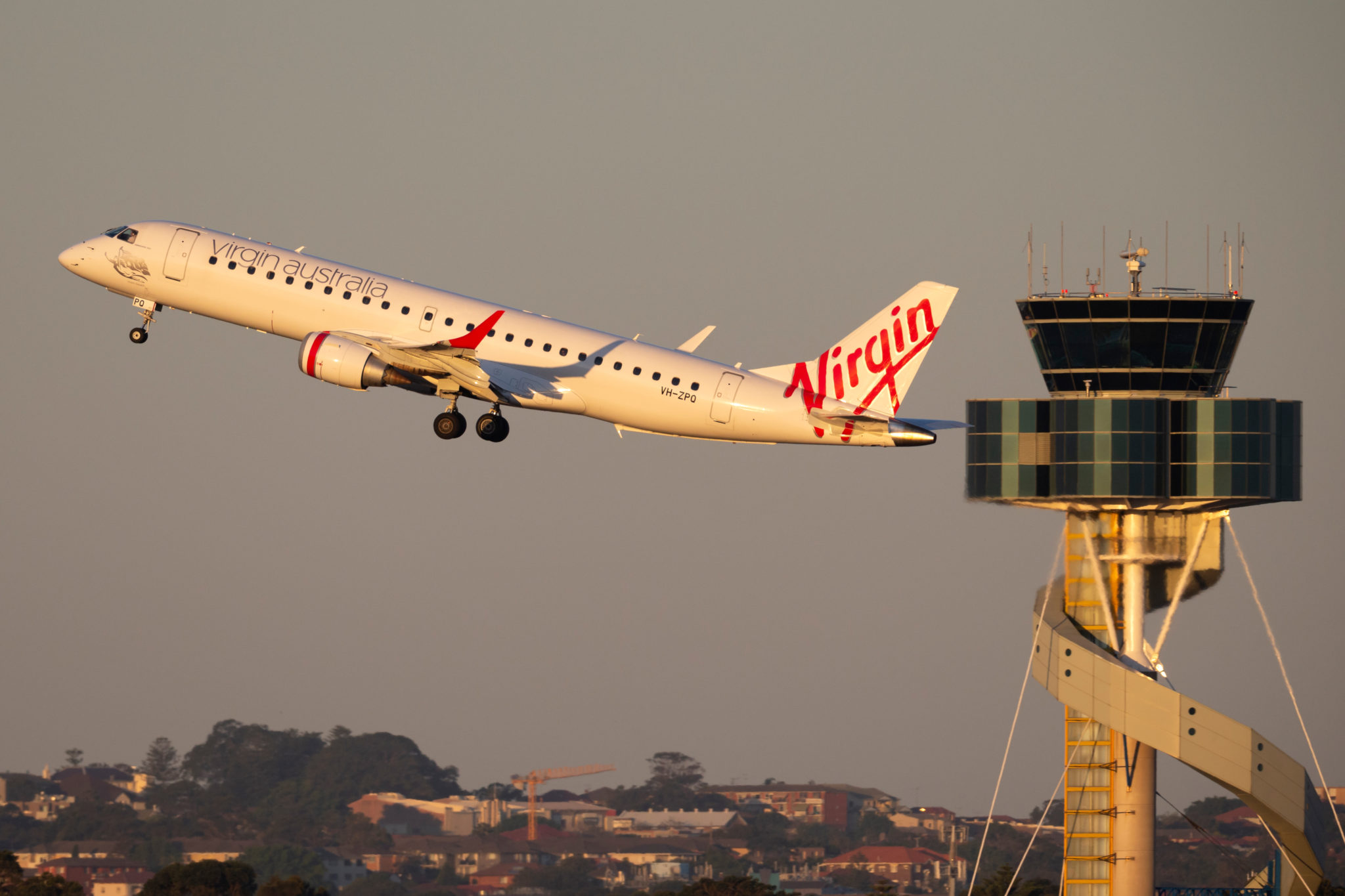
Eastern Star Aviation Times Weekly – April 21
Virgin Australia – Virgin Australia became the nation’s biggest corporate casualty of the coronavirus, calling in administrators after the outbreak deprived the debt-burdened airline of almost all income. Deloitte will take control of the company, the Brisbane-based airline said in a statement Tuesday. The administrators will be tasked with finding new investors to inject capital, reorganising borrowings or getting a buyer in an attempt to save the business,” South China Morning Post reports.
South African Airways – “Approximately a year ago at the Air Cargo Africa 2019 in Johannesburg, South African Airways’ (SAA) Group CEO Vuyani Jarana (who ended his term on July 31, 2019), shared different contours of the work in progress for saving the terminally ill company to Logistics Update Africa. But the lack of commitment to fund SAA by the government systematically undermined the implementation of the strategy, making it increasingly difficult to succeed. Now, SAA is planning to lay off its entire 4,700 employees, compelling to ground the 86-year-old national carrier,” Logistics Update Africa reports
Virgin Atlantic – “Virgin Atlantic needs government support to survive the coronavirus crisis, the airline’s founder warned today. In a 20 April blog post, Virgin Group founder Richard Branson writes: ‘Together with the team at Virgin Atlantic, we will do everything we can to keep the airline going – but we will need government support to achieve that in the face of the severe uncertainty surrounding travel today and not knowing how long the planes will be grounded for,'” FlightGlobal reports.
United Airlines – “United Airlines on Monday reported a $2.1 billion pre-tax loss between January and March, the first U.S. carrier to place a dollar amount on first quarter carnage, a period in which demand went from strong to nearly non-existent within weeks because of a once-in-a-century global pandemic. First quarter generally is weakest for U.S airlines, but United has in recent years been making money, reporting $367 million in profit in the first three months of last year. As recently as January, executives expected another strong quarter, reporting reasonable demand in most markets, including China,” Skift reports.
Airlines Global – “Airlines have been mauled by COVID-19 and the industry has cried out for help from governments to survive a crisis that could cripple a key sector of the economy. As countries closed their borders and resorts shut down for an indefinite period, airlines grounded their planes and furloughed thousands of workers. In early April, global traffic was 80 percent below the same period a year earlier, quashing recent forecasts that the number of airline passengers would double within 20 years with annual growth of three to four percent,” AFP/Le Journal de L’Aviation reports.
China Airlines – “Two of China’s largest airlines have warned of a ‘substantial loss’ for their first-quarter financial results. Both China Eastern and China Southern Airlines flagged the financial hit in their monthly traffic results for March, where they note that even with ‘timely measures’ taken to mitigate the coronavirus outbreak, a financial loss was inevitable,” FlightGlobal reports.
India Airlines – “India won’t allow commercial flights to operate until it is confident that the coronavirus outbreak is under control, the aviation minister said, piling further pressure on the country’s cash-strapped airlines,” Bloomberg/Gulf News reports.
Aircraft – “The Covid-19 pandemic has emptied the skies of busy traffic, posing an additional challenge to cash-strapped airlines to find enough tarmac space and maintain grounded jets in top shape for an eventual return to service. About 64 per cent of the world’s 26,000 passenger planes are currently grounded, according to data provider Cirium, as the coronavirus devastates air travel demand and unleashes the worst peacetime crisis in the aviation industry’s history,” The National reports.
Malaysia Airways/Air Asia – “Merging money-losing state carrier Malaysia Airlines Bhd with budget airline AirAsia Group Bhd is one of the options to ‘save’ them as the Covid-19 crisis batters the industry, Malaysia’s second-most senior minister Datuk Seri Mohamed Azmin Ali told Reuters on Friday,” Reuters/Edge Markets Malaysia reports.
South African Airways – “Approximately a year ago at the Air Cargo Africa 2019 in Johannesburg, South African Airways’ (SAA) Group CEO Vuyani Jarana (who ended his term on July 31, 2019), shared different contours of the work in progress for saving the terminally ill company to Logistics Update Africa. But the lack of commitment to fund SAA by the government systematically undermined the implementation of the strategy, making it increasingly difficult to succeed. Now, SAA is planning to lay off its entire 4,700 employees, compelling to ground the 86-year-old national carrier,” Logistics Update Africa reports
South African Airways – “Regional carrier South African Airways could be one of the first victims of the storm that has hit the global airline industry as it has been denied any further funding by its government owner. The national carrier must now look for other ways to recover from the coronavirus crisis and a local form of bankruptcy protection. SAA’s external debt is guaranteed by the state in the event of the carrier’s collapse,” Business Day reports.
Etihad Airways – “Abu Dhabi’s Etihad Airways plans to start scheduled passenger services on May 1 under a reduced schedule to remain in place until June 30, subject to the status of United Arab Emirates travel restrictions, the company announced Thursday. Meanwhile, Etihad has revised the launch date of its inaugural service to Vienna from May 22 to July 1. Etihad continues to operate a growing schedule of repatriation flights and special cargo services carrying perishables, pharmaceuticals, and medical supplies. The airline has repatriated nearly 600 UAE nationals on return services,” Aviation International News reports.
Emirates/Covid-19 – “It was only a matter of time. Emirates is now officially the first airline to test passengers for the coronavirus before they board. Though most nations remain in some form of lockdown, and air travel has slowed to a near halt, the company took the reduction in traffic as an opportunity to begin its testing program this week. Beginning with a flight that left from Dubai headed for Tunisia, the first blood tests were administered by the Dubai Health Authority to passengers with results rendered in 10 minutes,” RobbReport reports.
Singapore Airlines – “Covid-19’s grounding of airlines worldwide has ensured that only the fittest and best-supported fliers will survive. With rich government backing, Singapore Airlines Group (SIA) is well-positioned to ride out the turbulence and boost its post-pandemic global market share. Singapore is now estimated to have the world’s largest number of idle aircraft after global travel restrictions forced SIA to ground 96% of its approximately 200-plane fleet on March 23. With infections sharply rising in the city-state and elsewhere, it is unclear when normal operations will resume,” Asia Times reports.
Middle East Airlines – “Middle Eastern carriers are resuming limited passenger flights, using the grounding of airplanes to perform extensive maintenance checks and introducing new airport testing and mask wearing requirements in response to travel restrictions resulting from the COVID-19 coronavirus. Both Emirates and Etihad added more cities to their flight schedules this week, as both carriers have slowly been resuming international flying since the beginning of April. Emirates first received approval from UAE civil aviation officials to start carrying passengers on flights Dubai to London Heathrow, Frankfurt, Paris, Brussels and Zurich, with four flights a week to London Heathrow Apr. 2,” Aviation Today reports.
Ethiopian Airlines – “Ethiopian Airlines on Tuesday announced it had lost $550 million in revenue since January attributable to the coronavirus pandemic. Ethiopian Airlines CEO, Tewolde Gebremariam, said the airlines were forced to suspend passenger flights to 91 international destinations due to the global pandemic,” The East African reports.
Cambodia Aviation – “Vietnam Airlines has sold its 49 per cent stake in national flag carrier airline Cambodia Angkor Air to undisclosed buyers, State Secretariat of Civil Aviation (SSCA) spokesman Sin Chansereyvutha told the Council of Ministers on Thursday. Also included in the sale were five A321 aircrafts with a total liquidation value of $37 million,” The Phnom Penh Post reports.
China Aviation – “Airlines in China reported a total loss of 33.62 billion yuan (US$4.8 billion) in the first quarter as the coronavirus pandemic hit travel demand, the country’s aviation regulator said yesterday. In February, the airlines suffered a record loss of 20.96 billion yuan as large parts of the country remained on lockdown amid efforts to curb the spread of the virus,” Shenzhen Daily reports.
ANA Holdings – “Japanese airline ANA Holdings on Monday slashed its annual net profit forecast by 71 percent over massive falls in demand and major cancellations caused by the coronavirus pandemic.For the past fiscal year to March 2020, the firm said it now expects a net profit of 27 billion yen ($194 million), down from an earlier projection of 94 billion yen,” Japan Today reports.
Garuda Indonesia – “National flag carrier Garuda Indonesia is cutting its employee salaries by 10 to 50 percent from this month to June as the company struggles to stay afloat amid pressures from a broad-based slump in traveling activities. Garuda president director Irfan Setiaputra said the company resorted to salary cuts to maintain business sustainability as the coronavirus pandemic has hit travel-related businesses hard,” The Jakarta Post reports.
Lion Air – “Thai Lion Air is reducing its workforce again amid the freezing of its business due to the coronavirus outbreak in the country. The airline informed its staff in a statement last week that almost 120 employees with less than a year’s experience would be let go on the understanding that they would be the first priority for recruitment in the future if business returns to normal,” Bangkok Post reports.
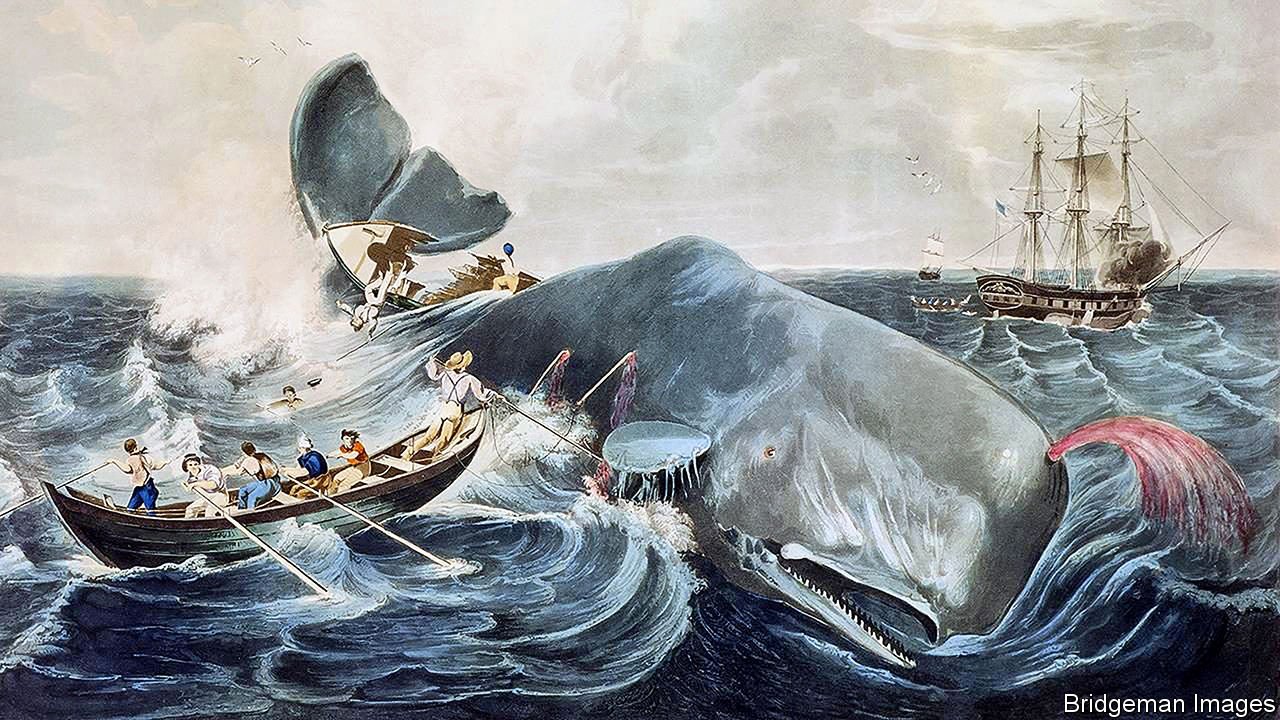
Overheard in the Caravanserai…Melville’s Moby Dick and the Human Condition
The men and women of our humble Caravanserai are catching up on their reading in these Covid-19 times.
Overheard: a veteran seafarer on merchant ships across the oceans was re-reading Herman Melville’s classic, Moby Dick, that great chronicle of 19th century whaling, seafaring and the multitudes of our human condition, and he read aloud these choice quotes to approving members of our New Silk Road tribe…
“Whenever I find myself growing grim about the mouth; whenever it is a damp, drizzly November in my soul; whenever I find myself involuntarily pausing before coffin warehouses, and bringing up the rear of every funeral I meet; and especially whenever my hypos get such an upper hand of me, that it requires a strong moral principle to prevent me from deliberately stepping into the street, and methodically knocking people’s hats off–then, I account it high time to get to sea as soon as I can. This is my substitute for pistol and ball. With a philosophical flourish Cato throws himself upon his sword; I quietly take to the ship.”
“It is not down on a map. True places never are.”
“For there is no folly of the beast of the earth which is not infinitely outdone by the madness of men.”
“Heaven have mercy on us all – Presbyterians and Pagans alike – for we are all somehow dreadfully cracked about the head, and sadly need mending.”
“There are certain queer times and occasions in this strange mixed affair we call life when a man takes this whole universe for a vast practical joke, though the wit thereof he but dimly discerns, and more than suspects that the joke is at nobody’s expense but his own.”
And, after the defeat of Captain Ahab and his crew by the Great White Whale, Moby Dick, the last lines haunt the reader as the ceaseless tide of nature rolls on:
“Now small fowls flew screaming over the yet yawning gulf; a sullen white surf beat against its steep sides; then all collapsed, and the great shroud of the sea rolled on as it rolled five thousand years ago.”
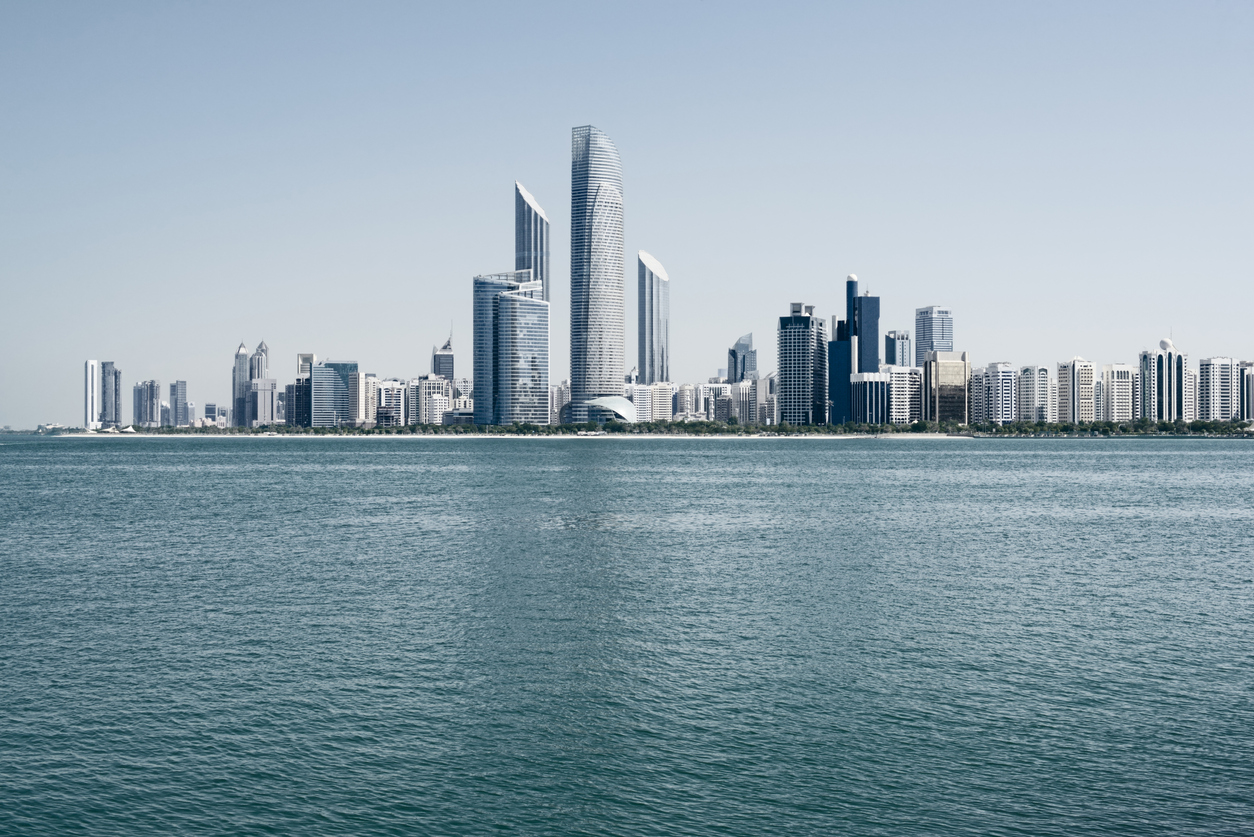
Middle East Business Telegraph Monitor – April 18-20
The top business/economic stories from the MENA region as reported in the regional and industry press – April 18-20
Abu Dhabi – “Abu Dhabi’s economy is ‘well cushioned’ from external shocks such as the coronavirus pandemic and volatility in oil markets, the chairman of the Abu Dhabi Department of Finance said on Sunday. The emirate has also raised $7 billion (Dh25.7bn) through a bond offering which showed strong international demand. It was more than six times oversubscribed, with 90 per cent of orders coming from outside the Middle East, despite concerns about the global economy. Jassim Al Zaabi said this was a sign of investor confidence in the emirate,” The National reports.
Oil Markets – “With markets struggling to digest the steep declines in Brent prices, analysts say it may be time for a different approach when it comes to investing in the so-called liquid gold. And here is why. Measures to contain the virus outbreak have effectively frozen the global economy: planes have been grounded, businesses shuttered and billions of people largely confined to their homes. The need for oil products such as gasoline and jet fuel has evaporated,” Gulf News reports.
UAE/NMC – “BR Shetty, the founder of NMC Health, which was placed into administration by a UK court last week and faces criminal charges, said he flew to India in early February for personal reasons. Mr Shetty told The National when reached by phone on Friday that he left the UAE to Mangalore on February 7 to be with his brother, who had cancer and died earlier this month aged 82…Reports had suggested Mr Shetty fled to India as legal and operational challenges mounted in relation to his companies NMC Health and Finablr, both listed on the London Stock Exchange,” The National reports.
UAE/ADNOC – “An investor group backed by Global Infrastructure Partners (GIP) and Brookfield Asset Management Inc. is seeking a loan of about $8 billion to finance the potential purchase of a stake in Abu Dhabi National Oil Co.’s natural gas pipelines, according to people with knowledge of the matter. The consortium – which also includes Italian infrastructure operator Snam SpA, Ontario Teachers Pension Plan and Singapore sovereign fund GIC Pte – has reached out to banks to gauge their interest in participating, according to the people, who asked not to be identified because the information is private,” Arabian Business reports.
Egypt/Moody’s – “Ratings agency Moody’s has kept Egypt’s credit rating at B2 with a stable outlook.According to a Moody’s report published Saturday, seen by Ahram Online, the credit profile of Egypt (issuer rating B2) is supported by ‘A3’ economic strength. A3 is the seventh highest rating a debt issuer can receive, denoting that Egypt’s financial and banking system is solid with a low risk of default,” Ahram Online reports.
Lebanon Currency – “The exchange rate of the dollar for money exchanges in Lebanon reached a new record on Saturday. Money exchangers sold the dollar for 3,250 Lebanese pounds. Lebanon has never seen that price, even during its civil war in the 1980s. The official price of the dollar in banks remains 1,507 pounds,” Arab News reports.
Iran/Covid-19 – “Iran relaxed more of its restrictive measures on Monday and allowed medium-risk businesses to resume operations, but extended the closure of schools, universities, mosques and holy sites. The coronavirus taskforce, chaired by President Hassan Rouhani, announced on Sunday that medium-risk businesses such as stores can resume operations tomorrow if they respect health protocols devised by the Health Ministry, ISNA reported,” Financial Tribune reports.
Dubai/Banking – “Emirates NBD PJSC set aside about $700 million in the first quarter to cover bad loans, giving investors a glimpse at the damage the coronavirus and lower oil prices are wreaking on bank earnings in the Gulf,” Bloomberg/Al-Arabiya reports.
Saudi FinTech – “The Saudi Arabian Monetary Authority (SAMA) announced that it has permitted nine more FinTech companies to operate in the Regulatory Sandbox, raising the total to 30. The new batch serves SAMA’s effort to promote the digitization of financial services and drive towards digital transformation in the financial sector in line with the requirements and objectives of the Financial Sector Development Program, one of the Kingdom’s Vision 2030 programs,” Asharq Al-Awsat reports.
Turkey Autos – “Most of the Turkish automotive companies are planning to reopen manufacturing plants next week after nearly a one-month-long suspension due to measures to curb the spread of the novel coronavirus. Commercial vehicle producer Anadolu Isuzu, a joint venture between Turkish conglomerate Anadolu Holding, Isuzu Motors and Itochu Corporation, resumed production at its factory in the northwestern industrial province Kocaeli’s Gebze district on April 13. It had halted production on March 30,” Hurriyet Daily News reports.
Morocco/Autos – “French automaker Renault has decided to gradually and partially resume its industrial activity, the company announced today, April 17. Renault Maroc is preparing its two plants in Tangier and Casablanca ‘to adapt and adjust production as the market recovers to meet the demand both in Morocco and abroad,'” Morocco World News reports.
Lebanon/Bristol Hotel – “A five-star hotel in Beirut that once hosted royalty and survived the civil war has been forced to close over Lebanon’s economic crisis and coronavirus lockdown, its manager said on Saturday. Lebanon is grappling with its worst financial crunch since the 1975-1990 civil war, now compounded by a nationwide lockdown since March 15 to stem the spread of the novel coronavirus,” AFP/Jordan Times reports.
Algeria – “OPEC member Algeria’s gross domestic product grew 0.8% in 2019, down from 1.4% the previous year and far below the government’s initial forecast, the government said on Sunday, after a poor performance in the energy sector and mass public protests. The government had projected 2.6% growth for 2019. Algeria was rocked in 2019 by demonstrations in which protesters demanded political and economic changes and the removal of the ruling elite. The government has now banned such protests as part of measures to limit the spread of the new coronavirus,” Asharq Al-Awsat reports.

East Asia Business Telegraph Weekly – April 19
A weekly round-up of leading business/economic stories shaping East Asia from the pages of the regional press – April 19
Asia Growth – “Growth in Asia is expected to stall at zero percent in 2020 due to the COVID-19 pandemic — the lowest growth since the 1960s, the International Monetary Fund said on Wednesday. ‘This is a crisis like no other. It is worse than the Global Financial Crisis, and Asia is not immune,’ Chang Yong Rhee, director of the IMF’s Asia and Pacific Department, said at a virtual press conference. The region’s growth prospect for 2020 is the worst in almost 60 years, including during the Global Financial Crisis (4.7 percent) and the Asian Financial Crisis (1.3 percent), Rhee said,” Xinhua/Shangha Daily reports
South Korea Election – “The ruling bloc achieved a sweeping victory in the general election, Wednesday, winning nearly three-fifths of the 300 National Assembly seats. The landslide win has made the Democratic Party of Korea (DPK), and its ‘satellite’ offshoot Civil Together, an unprecedented political presence that will be able to pass any bill without the cooperation of other parties ― except for constitutional revisions that require a two-thirds majority ― a huge boost for the Moon Jae-in administration,” Korea Times reports
Philippines Economy – “S&P Global Ratings expects the Philippine economy to shrink by 2% this year — a sharp revision from its 4.2% growth estimate given in March — as the world comes to grips with the human and economic price of the novel coronavirus pandemic. The debt watcher had projected a baseline 6% gross domestic product (GDP) growth for the country in December, long before the coronavirus disease 2019 developed into a global health crisis,” Business World reports.
Malaysia Airways/Air Asia – “Merging money-losing state carrier Malaysia Airlines Bhd with budget airline AirAsia Group Bhd is one of the options to ‘save’ them as the Covid-19 crisis batters the industry, Malaysia’s second-most senior minister Datuk Seri Mohamed Azmin Ali told Reuters on Friday,” Reuters/Edge Markets Malaysia reports.
S. Korea Jobs – “Total job losses hit a 10-year high in March, while the number of people on leave jumped by a record in percentage terms, as Covid-19 shuttered factories and stores, forced the clearing of office buildings and laid waste to key industries. According to Statistics Korea on Friday, the number of people employed in March totaled 26.6 million, down 195,000 on year. In May 2009, in the aftermath of the global financial crisis, the number of people losing their jobs totaled 240,000,” Korea JoongAng Daily reports.
China/Sinopec – “Sinopec Oilfield Service expected it will have a net loss of 182 million yuan (HK$199 million) for the first quarter this year, compared with a net profit of 188 million a year ago amid the virus pandemic and a plunge in global oil prices,” The Standard reports.
China Aviation – “Airlines in China reported a total loss of 33.62 billion yuan (US$4.8 billion) in the first quarter as the coronavirus pandemic hit travel demand, the country’s aviation regulator said yesterday. In February, the airlines suffered a record loss of 20.96 billion yuan as large parts of the country remained on lockdown amid efforts to curb the spread of the virus,” Shenzhen Daily reports.
Japan/RCEP – “With the new coronavirus pandemic hindering the progress of talks over what would be the world’s biggest free trade pact, Japan may be forced to give up on its plans of reaching an agreement this year. Tokyo is likely to place a top priority on shoring up the nation’s virus-hit economy for an extended period, which would make it more difficult for Prime Minister Shinzo Abe to promote free trade agreements including the Regional Comprehensive Economic Partnership,” Japan Times reports.
Japan Aviation – “Japan’s top airlines are operating a majority of their domestic capacity even though the coronavirus outbreak has left seats on flights mostly empty, amid a lack of clear government directives on the functioning of transport infrastructure in the crisis. ANA Holdings Inc. and Japan Airlines Co., Ltd. (JAL), Japan’s two biggest airlines, have cut around 90 percent of international flights but left their domestic networks relatively intact, industry data showed. The two normally fly around 800 or more domestic flights daily,” Reuters/Asahi Shimbun reports.
Indonesia/Garuda – “National flag carrier Garuda Indonesia is cutting its employee salaries by 10 to 50 percent from this month to June as the company struggles to stay afloat amid pressures from a broad-based slump in traveling activities. Garuda president director Irfan Setiaputra said the company resorted to salary cuts to maintain business sustainability as the coronavirus pandemic has hit travel-related businesses hard,” The Jakarta Post reports.
Thailand/Lion Air – “Thai Lion Air is reducing its workforce again amid the freezing of its business due to the coronavirus outbreak in the country. The airline informed its staff in a statement last week that almost 120 employees with less than a year’s experience would be let go on the understanding that they would be the first priority for recruitment in the future if business returns to normal,” Bangkok Post reports.
Indonesia/Bonds – “The rupiah has appreciated for the last few days along with foreign capital inflow to government bonds, reflecting a return of investors’ confidence in the country’s financial stability amid the Covid-19 pandemic, Bank Indonesia Governor Perry Warjiyo said on Friday. Rupiah strengthened 1.8 percent to trade 15,503 against the US dollar on Friday, according to Jakarta Interbank Spot Dollar Rate. The currency had gained 4.5 percent so far this week and moved away from its record-low position early this month when it traded at 16,741 against the US dollar,” Jakarta Globe reports.
South Korea Election – “Did South Korea just have the first Covid-19 government referendum election? On Wednesday, South Korea’s liberal ruling party won a landslide victory in a general election, winning the kind of majority not seen inmore than three decades. Early analysis points to the high marks President Moon Jae-in received from his government’s handling of the coronavirus crisis,” The New Silk Road Monitor reports.
China Economy – “China’s economy shrank in the first three months of 2020 compared with a year earlier, the first such contraction since Beijing began reporting quarterly gross domestic product in 1992. The collapse foreshadows the pain expected in the U.S. and around the world as the coronavirus pandemic shuts borders, halts business activity and cripples global supply chains,” Wall Street Journal reports.
Thailand Contraction – “According to IMF latest projection, Thailand could stand as the worst performer among its Asean peers with a staggering drop of 6.7% of its GDP. Singapore would be the second worst performer with a -3.5% GDP forecast for 2020,” Thailand Business news reports.
Vietnam Banks – Fitch Ratings has lowered the outlook of five banks in Vietnam due to the negative impacts of the coronavirus pandemic. It revised the outlook for Vietcombank, Vietinbank and ANZ Bank (Vietnam) from ‘positive’ to ‘stable,’ and for the ACB and MB from ‘stable’ to ‘negative.’ The revision follows the blows taken by Vietnam’s economy from the pandemic, with a decade-low growth of 3.8 percent in the first quarter, and the State Bank of Vietnam having to cut its policy rates and directing banks to extend debt relief to affected borrowers,” VN Express reports.
Cambodia Aviation – “Vietnam Airlines has sold its 49 per cent stake in national flag carrier airline Cambodia Angkor Air to undisclosed buyers, State Secretariat of Civil Aviation (SSCA) spokesman Sin Chansereyvutha told the Council of Ministers on Thursday. Also included in the sale were five A321 aircrafts with a total liquidation value of $37 million,” The Phnom Penh Post reports.
Singapore Exports – “Singapore’s non-oil domestic exports (Nodx) did the unexpected in March by jumping 17.6 per cent, albeit from a low year-ago base. Economists polled by Reuters were expecting exports to drop 8.9 per cent, with more and more countries enforcing a lockdown due to the Covid-19 outbreak and restrictions to business activity,” Singapore Straits Times reports.
Myanmar Banks – “Thailand’s Kasikornbank is planning to expand into Myanmar’s retail market with a focus on digital services. The Central Bank of Myanmar on April 9 approved the Thai bank’s acquisition of a 35 percent stake in Ayeyarwaddy Farmers Development Bank (A Bank), making it the first foreign commercial bank to take a stake in a local lender. A Bank is the second Myanmar bank to welcome foreign shareholders,” Myanmar Times reports.

